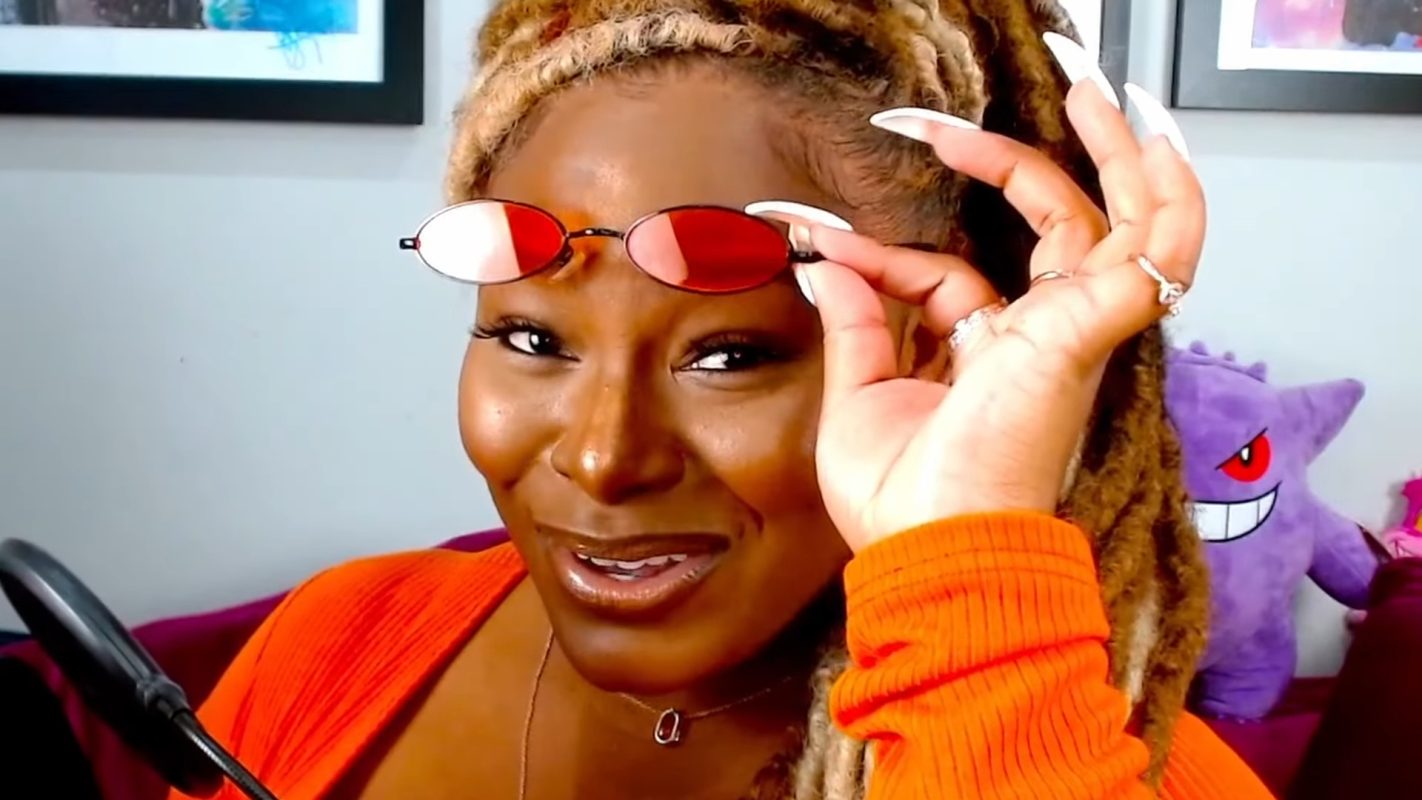The Internet’s Favorite Public Defender Just Started a YouTube Channel

Nine months ago, millions online, including myself, were introduced to Bahamian and Nigerian American Olayemi Olurin. The New York public defender and social justice advocate made two now-viral appearances on The Hill‘s young, populist-aimed broadcast, Rising. In one instance, Olurin perfectly reminded everyone that you could talk about someone’s transition (in this case Elliot Page) without deadnaming them.
The other instance included her reminding co-host Robby Soave that fleeing the police should not be an execution. This segment even appeared on Last Week Tonight With John Oliver a few months later. Now, she’s expanding advocacy and media literacy tips to YouTube in her own style.
Welcome to Olurinatti: The Show
In a play in her name and the word “Illuminati,” Olurin launched her first episode of Olurinatti: The Show on March 20. If you follow her online, you’ll be unsurprised to hear the first video was dedicated to showcasing Eric Adam’s criminalization of Black music. Since, Olurin has weighed in on Trump’s indictment, racism towards LSU star Angel Reese, and the preventable tragedy that is Riker’s Island. Riker’s is the second largest jail in the country (second to LA County and just ahead of Harris County). Dozens of people die there each year while awaiting trial. Yes, those not even convicted. This location is also where many of Olurin’s clients come from, as she is an NYC resident.
This YouTube channel was sort of inevitable but no less important. Despite her extensive writing for major publications and her own Substack newsletter (Olurinatti), many people are most familiar with seeing and hearing her. Be it in viral videos, Instagram videos posted to Twitter and TikTok, or as a guest on other programs, Olurin’s assertiveness, professional experience, and receipts at the ready bring in many that would not otherwise see criminal justice reform as an important issue. Between that ability to captivate and the volatility of Twitter as a platform, this feels like a natural fit.
In addition to Olurinatti and Rising, Olurin regularly appears in other news and social justice related web-series. This includes The Grio, the podcast Bad Faith, and Status Coup News. She, alongside a handful of other leftist journalists and essayists, hosts The Leftist Mafia Podcast. The early taglines for the broadcast include Jordan Peterson quotes like “We’ll see who cancels who.” Also, common online phrases like “the woke mob is coming for you.”
“Movement Lawyer. Political Commentator. Writer.”
To those unaware of the work on the ground, this move (and Making it Make Sense) might look like just another social justice influencer expanding. However, Olurin is doing the work offline and never actively sought to go viral. In several videos, she explained that the online stuff was just for fun and sometimes an outlet. (She’s not very online outside of her advocacy.) She decided to utilize her platform to inform her audience of systemic failures after seeing her reach.
In an age of armchair legal “experts” online that only multiplied during the Depp v. Heard trial, we need more actual experts. While lawyers like Devin Stone (Legal Eagle) and Stephanie St. Aubyn (Wine n’ Chill) can provide a great detail of information regarding case law and grey legal circumstances, Olurin centers her work from the perspective of an average person. (This is no shade to Stone or St. Aubyn—one of my favorite people online, whom I cite frequently.) I think part of this perspective comes from Olurin being a public defender.
For those privileged enough to forget what that is, a public defender is a volunteer or court-appointed attorney. They defend people on trial for criminal cases only, who couldn’t otherwise afford a lawyer. Despite being a right afforded to all in the U.S. (including those undocumented), these public defenders are criminally overworked, underpaid, and overbooked. This is a nationwide problem.
Once people are perceived as criminals, it becomes justification for any harm done to them.
That’s why everywhere we’re inundated with countless shows, movies, and mainstream images reinforcing the idea that there are just bad people who do bad things.
It unconsciously shapes our understanding of what police do, what kind of people police harm or arrest, what crime is, and who a criminal is.
Like Stone and St. Aubyn, Olurin is very committed to making the issues of criminal justice accessible. She isn’t afraid to mince words or play into respectability politics. Alongside fellow-Caribbean American lawyer St. Aubyn, Olurin looks at the U.S. and zooms out to wider patterns of injustice—things like pointing out that these issues aren’t bugs but features.
(featured image: screencap)
Have a tip we should know? tips@themarysue.com